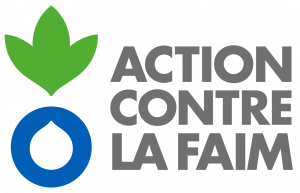
Strengthening women's resilience to climate change in Kanem province, Chad
MAIN OBJECTIVE:
To contribute to the strengthening of women's resilience in the Kanem Province for successful adaptation to climate shocks and variations
SP OBJECTIVESÉCIFIC OBJECTIVES :
- Improve the productivity of agro-pastoral production basins in a sustainable way
- Improving access to climate and environmental information in a sustainable way
- Improve access to savings and credit in a sustainable way
RÉEXPECTED RESULTS :
- Result 1: Women's access to land is improved and ouaddis* are secured
- Result 2: Ouaddis* are rehabilitated for better performance
- Result 3: Income-generating and savings initiatives are developed and diversified
- Outcome 4: Climate information is popularised
- Outcome 5: Differentiated knowledge on the topic of climate change is assessed
Valleysin arid or semi-arid areas suitable for market gardening activities
See the presentation material

- Intervention theme
-
- Environment
- Agri-agro
- Area of intervention
-
- Other (please specify)
- Skills required
-
- Search for funding
- Type of partnership
-
- Sponsorship
- Financing
- In search of funding
Women in rural areas make up 40% of the total population. They are the pillars of agricultural production and food security in general. In Kanem, in the Sahelian zone, in the field or behind the cattle, it is on them that the survival of the population depends. In this agro-pastoral community, women are the driving force behind agro-pastoral production and are responsible for cooking with what nature offers. They therefore strive to protect it so that the animals have good pasture, are well-stocked and produce good milk for the household diet and for marketing the surplus. Nomadic women know the land well and are at the forefront of observing the phenomenon of global warming. With the adverse effects of climate change, these women are helplessly witnessing a drastic drop in their agro-pastoral production (harvest covering only 3 months of the year's needs, forage deficit of 40%) and a deterioration of their living conditions. The income devoted to children's education is decreasing and the disappearance of the medicinal plants they mastered has a negative impact on the health of their livestock. Desertification, the lowering of the water table and the silting up of ouaddis[1] are the striking results of climate change. Indeed, women are forced to walk long distances (several kilometres) to fetch fuel (firewood) and water, increasing not only their domestic workload but also their exposure to safety risks.
The caste system, which is still very present in Kanem, mainly concerns the "Haddad" group ("the blacksmiths"). Their social and economic marginalization would be accentuated by the impact of climate change as local natural resources dwindle. The highly patriarchal social system with decision-making powers and control of resources concentrated in the hands of men leaves women in a situation of chronic vulnerability.
The confrontation of climate change impacts with the adaptive capacities of women's livelihoods has highlighted their high vulnerability due to their strong dependence on seasonal agro-pastoral activities.
In 2012, the United Nations Environment Programme (UNEP) recognised the essential role of indigenous peoples in the fight against global warming. By ratifying the United Nations Framework Convention on Climate Change (UNFCCC) in 1993, Chad committed itself to protecting the environment at the international level. A National Action Programme for Adaptation to Climate Change (NAPA - Chad) was drawn up in 2009 to identify the urgent and immediate needs of the population to cope with the negative effects of climate change.
It isin this context that ACF has been implementing socio-economic resilience projects for the past few years for the benefit of women, whose growing enthusiasm and motivation for market gardening, livestock breeding, processing and marketing of agro-pastoral products and by-products and other income-generating activities, village savings and loan associations, etc., no longer need to be demonstrated. The presence of the Ouaddis, the local know-how of women, the existence of rural and cross-border markets are all opportunities that these women must exploit to a greater extent to adapt to climate change. However, the exploitation of ouaddis by women remains limited due to: i) poor access to land; ii) poor mastery of production techniques, iii) the high level of difficulty in developing these sites and manually draining water, iv) the lack of adequate agricultural equipment, v) the continuous degradation of the productivity of ouaddis due to silting, etc.
STRATÉGY FOR INTERVENTION ON THIS ISSUE :
Several studies have confirmed the vulnerability of women to climate change and the emergence of new multidimensional and multisectoral needs to be adapted to their specificity in order to strengthen their resilience.
Through this project, ACF is continuing the sustainable support to women in Kanem in building their resilience to climate change, which has been underway for several years and has already produced good results. ACF intends to provide responses to specific needs identified during the implementation of the programmes already in place, which are
- Sustainable improvement of the productivity of agro-pastoral production basins
To limit the damage and develop the available local potential, urgent action is needed. Indeed, the ouaddis, which are the fields and agricultural land of the Kanem region, are threatened by silting (with a reduction in the exploitable surface area, a shrinking of the major river bed, a risk of overflowing water and flooding of the banks, crop land and houses). Similarly, the water table is increasingly deep (with a drawdown requiring adequate, sustainable and environmentally friendly means of extraction), poor management of irrigation water (in particular the wastage of water, a scarce resource in the Sahel, poor equipment and lack of training), as well as a drop in soil fertility (leading to a loss of yields, The lack of technical support (insufficient state technical agents, poor agropastoral extension, disconnection from innovative techniques), and finally the non-diversification of crops (no fodder crops even though the area is also pastoral, little use of spirulina, little development of arboriculture and agroforestry), etc.
- Sustainable improvement of access to savings and credit :
The women of Kanem do not diversify their income-generating activities very much, which makes them very vulnerable to climate shocks. ACF has initiated with them activities of transformation of products and by-products. These initiatives need to be improved, innovated and strengthened by exploiting new, non-agricultural opportunities such as the development of salt pans (exploitation of natrons), small-scale trade, the manufacture of improved stoves to reduce wood consumption and protect women and their babies from the carbon monoxide released by the smoke, etc. In addition, microfinance institutions should be encouraged to set up in the area to support the initiatives of women's groups.
- Sustainable improvement of access to climate information and environmental preservation:
Women engaged in seasonal agro-pastoral activities need access to climate forecasts in order to plan their campaigns accordingly. The absence of "Climate Thematic Groups" among women does not favour this access. This is why the organisation of women into several environmental clubs will be an innovation that will encourage them to search for, produce and share climate data but also to popularise the community nursery approach. The use of local community radio stations will be an asset for more impact.
ACF will use a climate change adaptation approach focusing on sustainable management of natural resources through the promotion of innovative initiatives with a sustainable impact on the environment, such as hydro-agricultural developments, solar irrigation systems, the valorisation of indigenous knowledge and the introduction of innovative crops. The Farmer Field Schools oriented towards the agro ecological transition in relation to the analysis of agroecosystems, the practice of combating silting, the mechanical and biological fight against desertification, the manufacture of bio pesticides, etc. will be popularised.
[1] Valleys in arid or semi-arid areas suitable for market gardening activities
ACTIVITYÉS :
- Activity 1:
In an agro-pastoral area, animal rambling is a constraint in the establishment of market gardening. The fencing of ouaddis is therefore essential to reduce not only the risk of conflicts between women and herders, but above all to free children to go to school. The latter are in charge of monitoring production sites against animal rambling. Similarly, the equipment with modern watering equipment (solar panels) respects the environment and also reduces the time spent watering the crops from 6 to 2 hours. The women can free up time to carry out their income-generating activities (IGAs) and their domestic work.
- Activity 2:
The aim is to make the Ouaddis more profitable by strengthening their sustainable exploitation through desilting (over digging, anti-erosion works for the physical protection of the banks), the establishment of living hedges (biological protection), the promotion of agroforestry and smart agricultural practices. The women will be supported in the preparation, restoration of the soil, development, equipment and enhancement of market gardening areas. The latter will be equipped with solar pumping, a Californian network and fencing reinforced with living hedges. They will be trained in rational irrigation water management techniques throughout the system: from the water production unit (borehole), during its transport (pipeline) and during its application (plot). The integration of agriculture and livestock will be strongly encouraged through the Farmer Field School approach. Seeds, inputs, tools and local supervision will be provided to diversify their agricultural activities: market gardening, food crops, arboriculture, agroforestry, fodder (e.g. alfalfa, which is very nutritious) and fattening. These activities will be carried out in collaboration with the technical services of agriculture and livestock.
- Activity 3:
ACF will strengthen the capacities of women's groups in associative life, action planning, marketing and financial management. Micro-projects for the processing and marketing of agro-pastoral and non-agricultural products and by-products will be financed. Innovative initiatives such as the manufacture and sale of spirulina, improved stoves (saving on firewood, reducing excessive wood cutting, relieving women), natron (prized by livestock including camels), cheese making (reducing the loss of unprocessed milk) will be strongly encouraged. The Village Savings and Loan Associations (VSLA) approach will be strengthened by networking existing savings groups and connecting them with microfinance institutions.
- Activity 4:
ACF will organise training for women on climate change, seasonal forecasts, climate impact, advocacy for environmental preservation, and the establishment of environmental clubs extended to young girls and boys. The "Triple E" approach to effective environmental education, led by women, will be developed. Rain gauges will be installed in the field and in the villages, and awareness-raising and radio broadcasts on the climate will be carried out. The promotion of community nurseries and the reforestation of degraded areas will be carried out by women with the support of the environmental service.
- Activity 5:
ACF will organise CAP surveys at the beginning and end of the project to assess the knowledge, attitudes and practices of the populations (women, men, youth, farmers, transhumant herders, etc.) on climate. The initial survey will enable the content of awareness-raising messages and training to be adapted. The final survey will measure the impact of the activities carried out in the framework of climate information dissemination.



Are you interested in this project?
Get in touch with Action Against Hunger
to obtain contact information
You need to be logged in to request a match.
New to Coexist?







